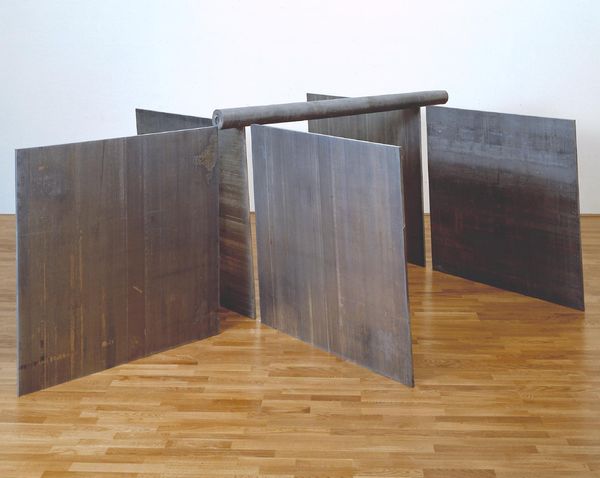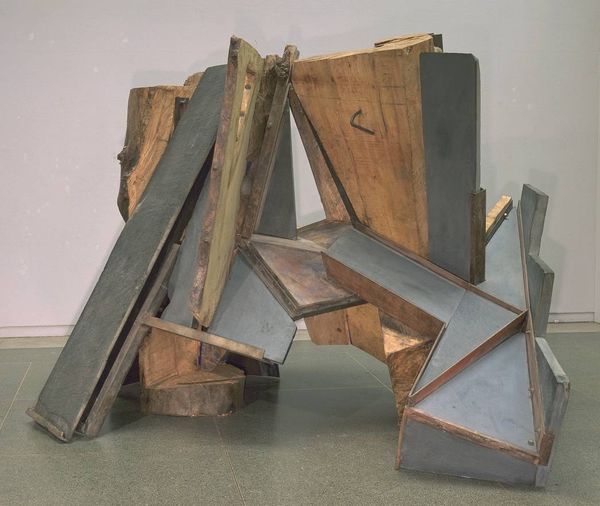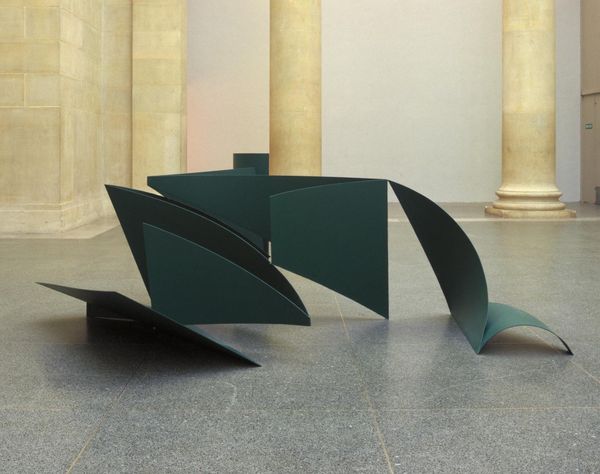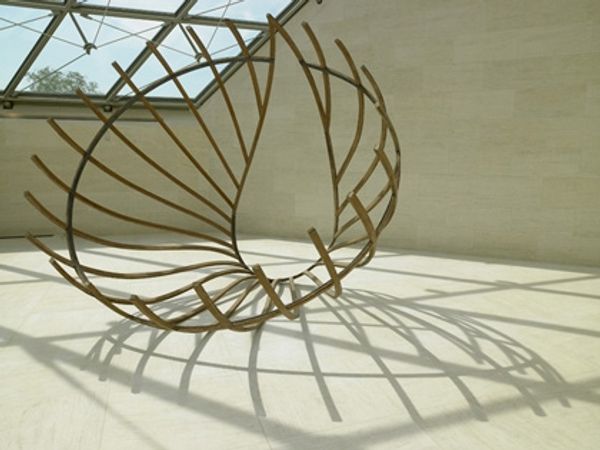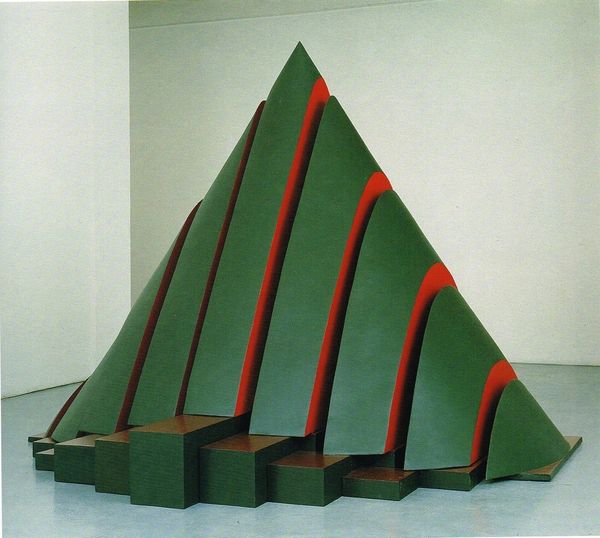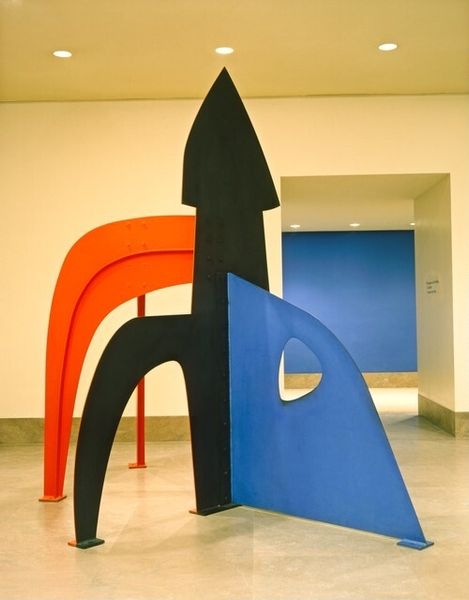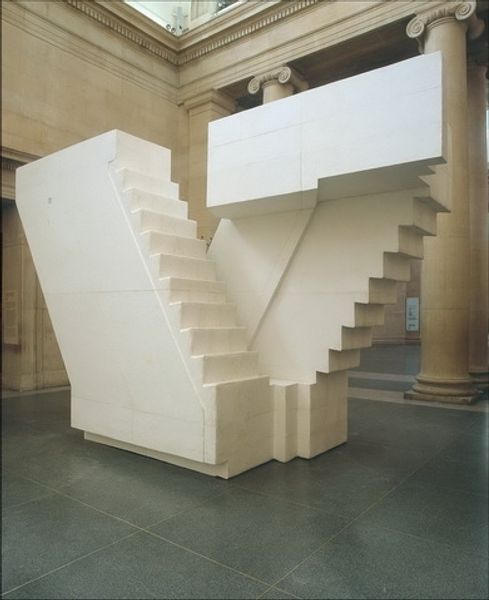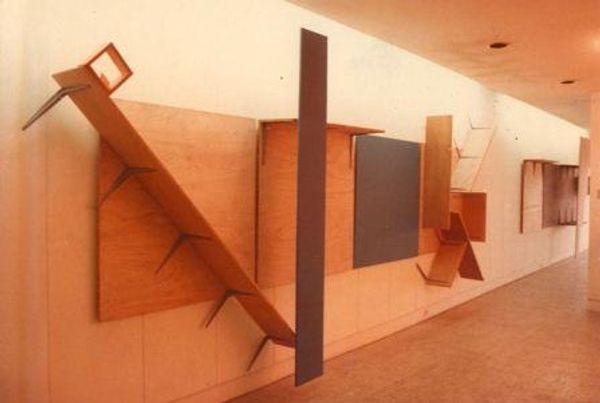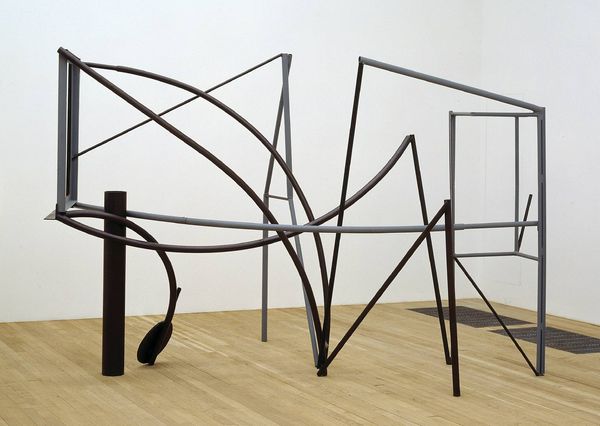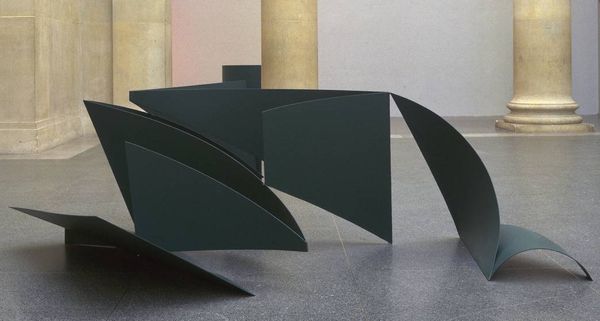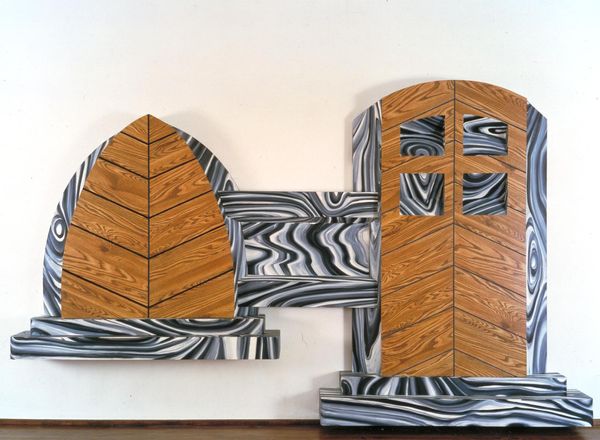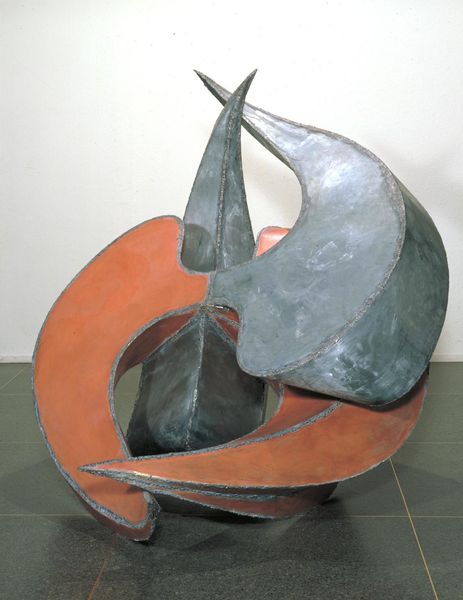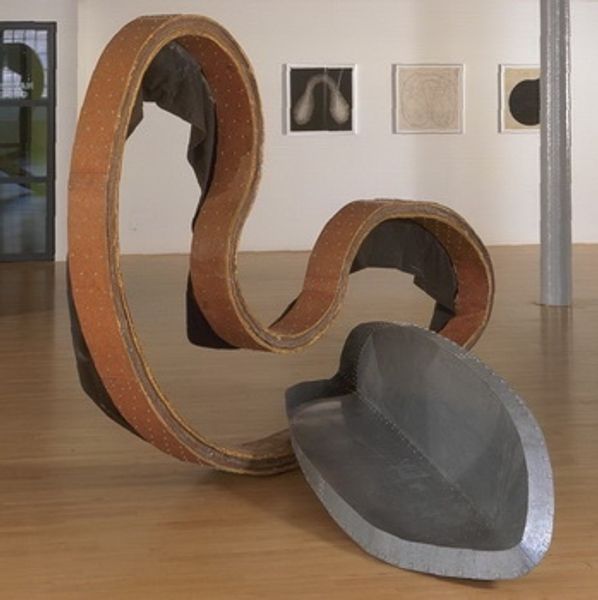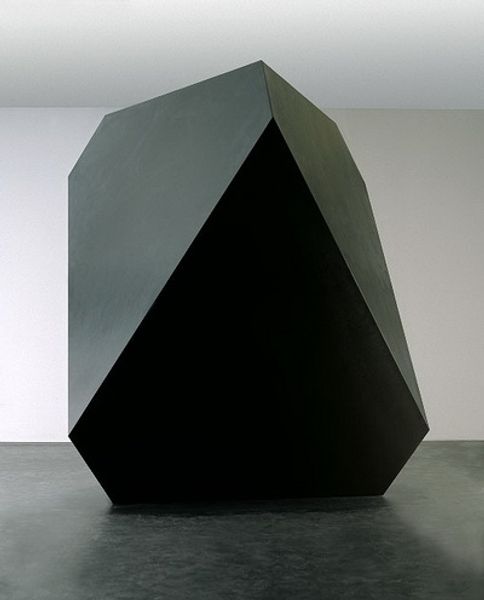
Dimensions: object: 2130 x 3840 x 3270 mm
Copyright: © William Tucker | CC-BY-NC-ND 4.0 DEED, Photo: Tate
Curator: William Tucker's sculpture, simply titled "Tunnel," presents a striking use of form and material. Editor: My immediate impression is one of instability, like this architectural fragment is on the verge of collapse, or perhaps, re-assembly. Curator: The raw, reddish-brown material evokes a sense of primal shelter. Think of ancient dwellings, or even the womb. Editor: I'm thinking more about the means of production, the labor involved in shaping these large, heavy sheets. The joins seem almost precarious; what kind of process was required to maintain these lines? Curator: That very tension is what gives it its power. It speaks to the universal need for protection, but also the fragility of that security. It taps into deep archetypes of home and vulnerability. Editor: Perhaps, but I think it's equally important to consider how the artist's engagement with material creates a dialogue about industrial processes versus organic forms. Curator: It's fascinating how the same object can evoke such different associations, isn't it? Editor: Precisely, and that's the value of art, to reflect and refract our perceptions.
Comments
Join the conversation
Join millions of artists and users on Artera today and experience the ultimate creative platform.
tate 10 months ago
⋮
'Tunnel' reflects Tucker's conviction that a sculpture should be a thing rather than an image, asserting itself as 'a direct physical and visual fact'. It should be in the world of recognisable objects but also separate from them, being unfamiliar and surprising. In 'Tunnel' this ambivalence is achieved through its articulation of space. Although abstract, its scale, form and materials evoke the familiar experience of habitable space. The way Tucker encloses a void and invests this with human significance shows the influence of Gonzalez's 'Head called The Tunnel' (in Gallery 29). The structural innovations of 'Tunnel' had significance for the next generation of sculptors, in particular Richard Deacon. Gallery label, August 2004
